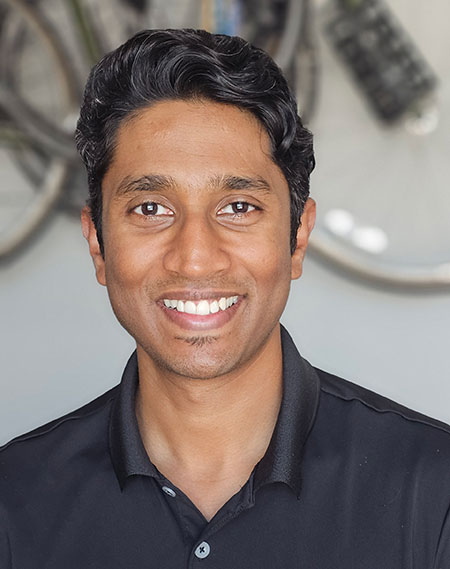
 Vignesh Santhanagopalan (34) began his journey in the pumps industry with undergrad coursework in fluid dynamics and mechanical systems. Throughout his engineering career, he has gravitated toward fluid systems and hydraulic applications, and his role as an application engineer—and later as a teaching assistant at the fluid dynamics lab—helped him gain in-depth knowledge of pumps and liquid transfer, particularly how they interact with different systems. Now, as a professional engineer, he designs and certifies temporary pumping systems to facilitate critical infrastructure improvements, helping to ensure public health, safety and welfare.
Vignesh Santhanagopalan (34) began his journey in the pumps industry with undergrad coursework in fluid dynamics and mechanical systems. Throughout his engineering career, he has gravitated toward fluid systems and hydraulic applications, and his role as an application engineer—and later as a teaching assistant at the fluid dynamics lab—helped him gain in-depth knowledge of pumps and liquid transfer, particularly how they interact with different systems. Now, as a professional engineer, he designs and certifies temporary pumping systems to facilitate critical infrastructure improvements, helping to ensure public health, safety and welfare.
When asked what aspects of working in the industry he finds most rewarding, Santhanagopalan mentioned the constant opportunities for growth as well as “the tangible impact we have on essential services. Whether providing solutions for clean water during the aftermath of a hurricane, supporting oil and gas production during an unscheduled downtime or ensuring efficient industrial processes in remote locations, my work helps keep critical infrastructure running smoothly.”
He is particularly proud of his work on a project where he designed and optimized a full-scale hydraulic cooling water system, “including performing heat transfer calculations and sizing necessary chiller equipment to keep the temperatures within the performance limitation of a chemical.”
Santhanagopalan has received invaluable guidance from various mentors along his career journey, from his thesis advisors during his undergraduate and graduate school years to his supervisors from his time as a technical services engineer and application engineer.
When asked what advice he had for students considering a career in this industry or newcomers to the workforce, he said, “My advice would be to continuously build your technical foundation but also focus on understanding customer needs. A solid grasp of engineering principles and real-world applications will set you apart. Also, be open to learning from hands-on experience—fieldwork is just as valuable as classroom learning.”

